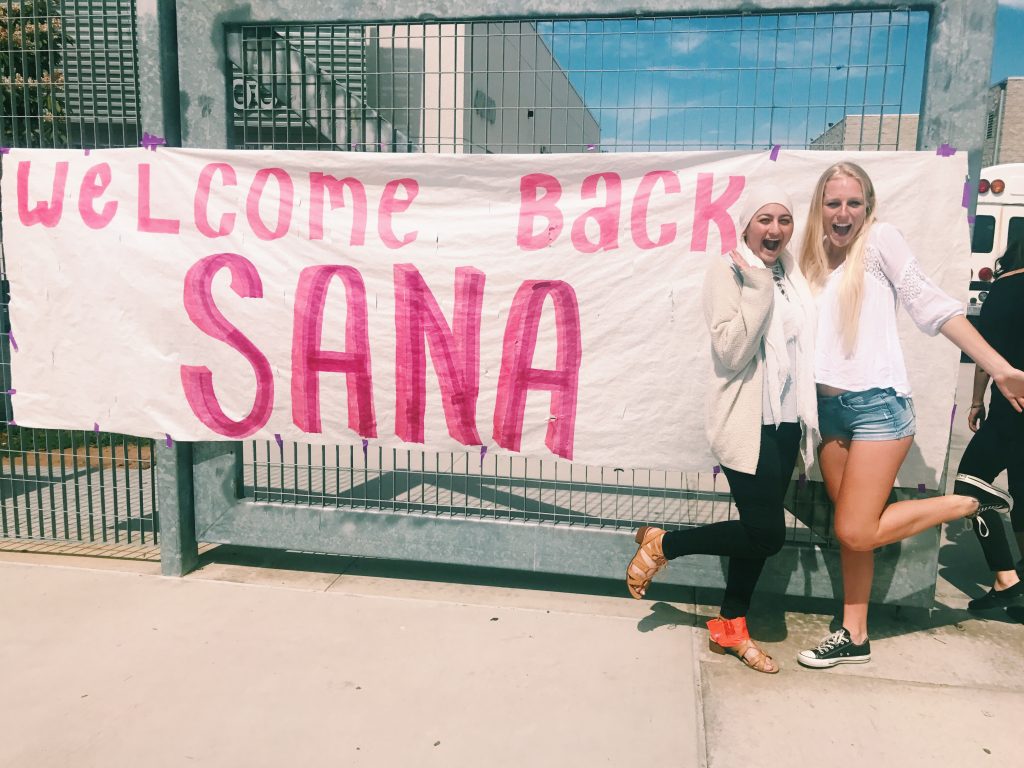
Cancer in High School Series (Part 3): Supporting a Classmate After Treatment
If you have a friend or classmate who has been away for a long time and is ready to return back to school, keep in mind that their life is slowly returning to a “new normal.” However, transitioning back to school post-treatment can be a difficult adjustment for teen survivors. Be ready to assist them both physically and emotionally, be aware of the changes and effects of their treatment, and be sure to handle your own emotions in the process.
After an extended period away, cancer patients often think about missed academic and social activities. Some common questions include:
- How will my classmates react to my return?
- How will they react to my physical changes in appearance??
- What did I miss out on?
- What academic work do I have to make up?
- Will I be able to catch up?
As you think about how to support a classmate post-treatment, it is important to remember that things may feel different, but you can help support a seamless transition back to a “new normal.”
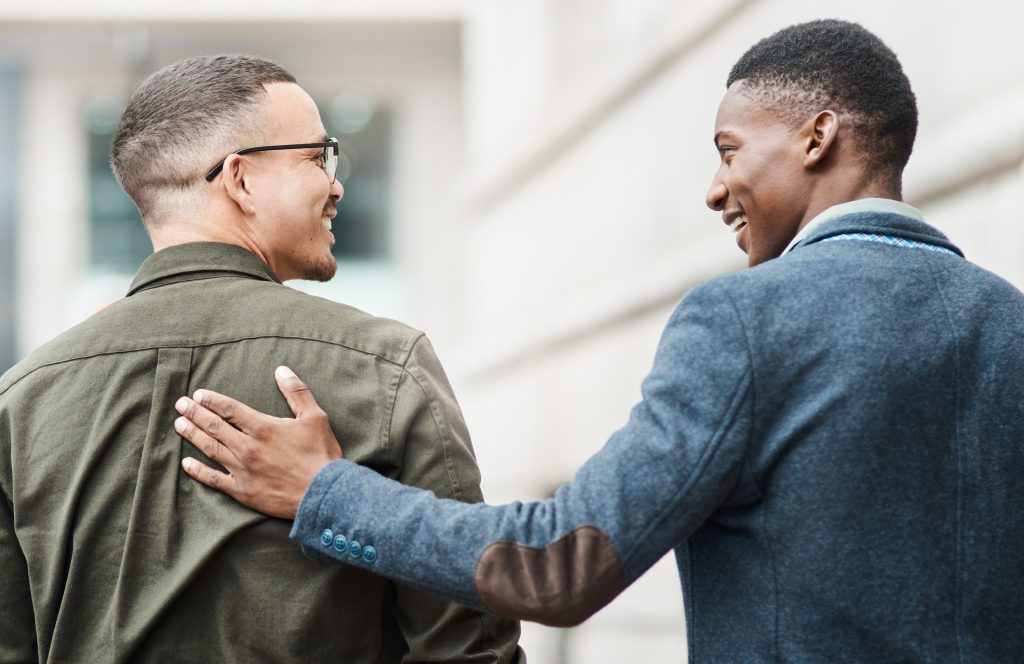
Returning to Campus
Before their first day back on campus, try to recognize and understand your classmate’s feelings about returning to school. Returning to school can be unsettling and even scary having missed a significant portion of school due to treatment. By planning ahead, you can determine how the student wants to be supported.. Is it a grand welcome with posters, cheering from various classmates, and balloons? Or is it a quiet “welcome back” from close peers, making the return as undisclosed as possible? Focusing attention on the fact that they had cancer can often do more harm than good as they try to return to a normal existence on campus. The last thing they usually want is to be constantly referred to as “the one that had cancer”. By talking to close friends, siblings, and your classmate’s parents, you can plan a welcome back that fits your classmate’s wants and desires.
Understanding the Situation
Post-treatment physical and emotional changes can include hair loss, self-consciousness, anxiety, depression, physical fatigue, problems with concentration and comprehension, and sensitivity. It helps to be informed about what they have had to go through during cancer so you can be better prepared and more empathetic towards their situation. For more information, check out our first blog in this series, Overview of the Teen Cancer Experience, our Cancer 101: Understanding the Road Ahead, and our supporter roadmap web page to learn more and find answers to other questions you might have about your classmate’s experience. Life by Ella, streaming on Apple TV does an excellent job portraying the challenges Ella, a 13-year-old cancer survivor, experiences with her family and classmates after returning to school.
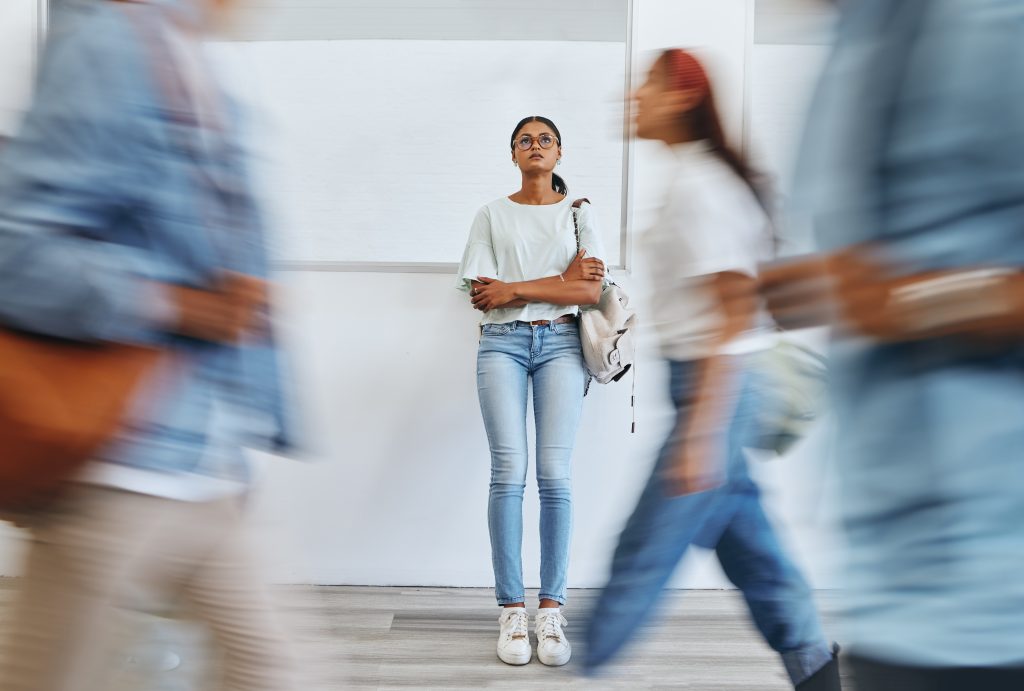
How to Help the Returning Classmate Cope with Anxiety
Returning to school is a big step for someone who has gone through the grueling process of cancer and its treatment. Some concerns the student may have include:
- Being in the spotlight and the center of attention at school. The student may be worried about how people around them will react. Refer back to the “Coming Back to Campus” section to see how you can best support them.
- Fitting in with classmates and returning to a sense of belonging. The student may be worried about having trouble fitting back into the school because of changes in their physical appearance and mental health. Help the student feel as comfortable as possible and be mindful of topics they may feel sensitive about, including hair loss, weight loss, and other physical changes.
- Feeling excluded. Your classmate’s extended absence likely means they have missed out on big milestones and events that occurred while they were away. When they return, be sure to let them know that you missed having them around. Fill them in on any changes or events that will help them feel “caught up.” Include them in conversations and group activities, and help them adjust, during this challenging transition phase.
- Dealing with bullying or teasing from other students. Although schools typically have anti-bullying policies, it, unfortunately, still happens. Your classmate may be afraid of the negative, targeted attention they receive. As a supporter, do your best to intervene when you see bullying or harassment. Talk to a trusted school administrator for help if it is a recurring thing, you see taking place. Always try to educate and point out when someone is doing something wrong.
Support During School
“My identity had been reduced to simply being “the girl with cancer,” without everyone having the facts to inform their bewildered stares. Suddenly, classmates who I’d scarcely spoken to were holding my hand with teary eyes and my crush from Spanish class was asking me if my cancer was terminal, mid-verb conjugation. I’d scurry through the halls, trying to escape the eyes of my peers.” —BELLA ARNOLD
As supporters, friends, and peers, it is important to be mindful of our returning classmate’s support needs but continue seeing them as a person and not equating them to with cancer. Think about how close you are with the student; if you do not feel as close with them, try to be sensitive to the situation. If necessary, take the time beforehand to ask questions to trusted adults and teachers to ensure a safe environment for the student’s return. The student may come back with visible or emotional changes; be mentally ready for these changes to ensure a welcoming return.
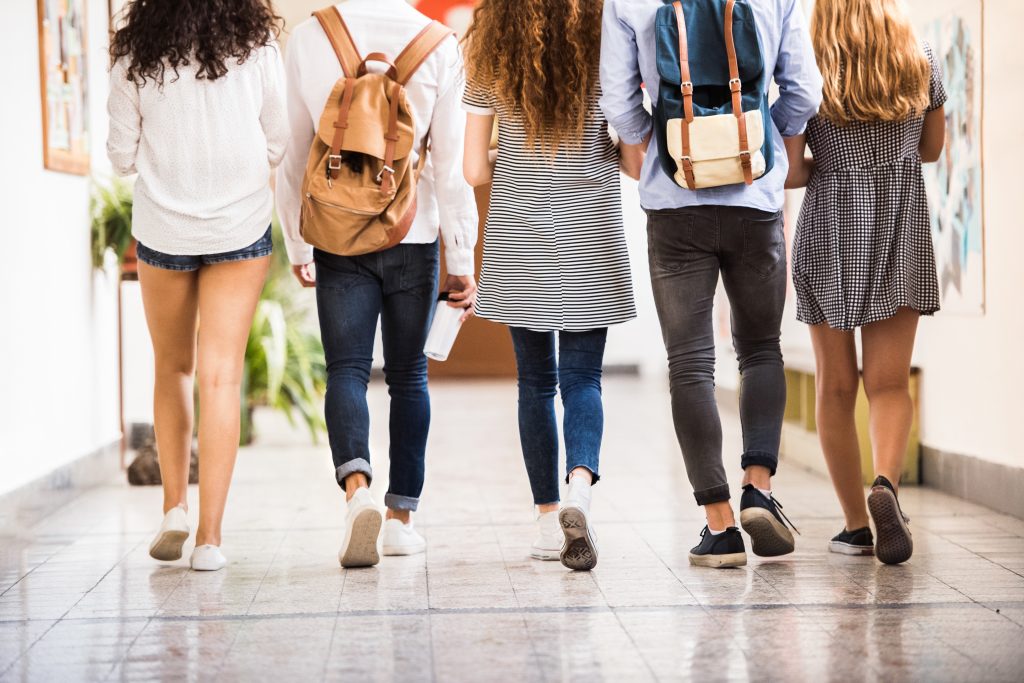
“My school has been so supportive and helpful, and I couldn’t be more thankful for that! A friend of mine hosted a swab drive with DKMS and they had a great turnout. I am so grateful for everyone that swabbed [to determine whether they are a stem cell donor match]! The most challenging thing is that nobody, including your closest friends, will ever understand what you’re going through or how you feel but I appreciate the ones that truly try.” —AUTUMN COLE
What Should I Avoid Doing?
Sometimes things slip out, or curiosity gets the best of us. Here are some things you should avoid bringing up in conversation with your returning classmate unless the student engages in that conversation.
- “I know someone who went through a similar situation.” Avoid bringing up other stories, as everyone has a different experience with cancer and faces different challenges. Sometimes, this statement can seem like you are comparing their story to someone else’s and are dismissive of their own experience.
- “I know exactly how you feel/what you are going through.” Everyone feels differently about the situations they face. Even if you went through a significant illness or injury, the experience is never the same; show empathy.
- “You are so brave for coming to school.” Putting labels on them, while well intentioned, can keep them from being their authentic selves and cause them to feel isolated. For example, telling them they are so brave can keep them from showing anything other than a brave face, even when they may feel otherwise inside.
- “Your appearance has changed.” or “You look different.” Comments like these can make the student even more self-conscious and apprehensive about their appearance. Even if they do look different, drawing attention to it is not helpful.
- “Everything will be okay.” Although the first impression of this statement seems to be positive, talking about the condition or state they are in and making positive assurances when you don’t have control over these promises is dismissive of their feelings. The student may fear the return of their cancer and statements like this one can cause anxiety over this fear.
In general, stay authentic to your relationship and the topics you would naturally discuss as part of that relationship. Follow their lead on topics specific to their cancer or changes in appearance and mood. If they want to talk about it, they will take the lead. When they do, don’t change the subject. Be a good listener and provide a safe and non-judgmental space. If they don’t want to talk about it, find other common ground to connect on.
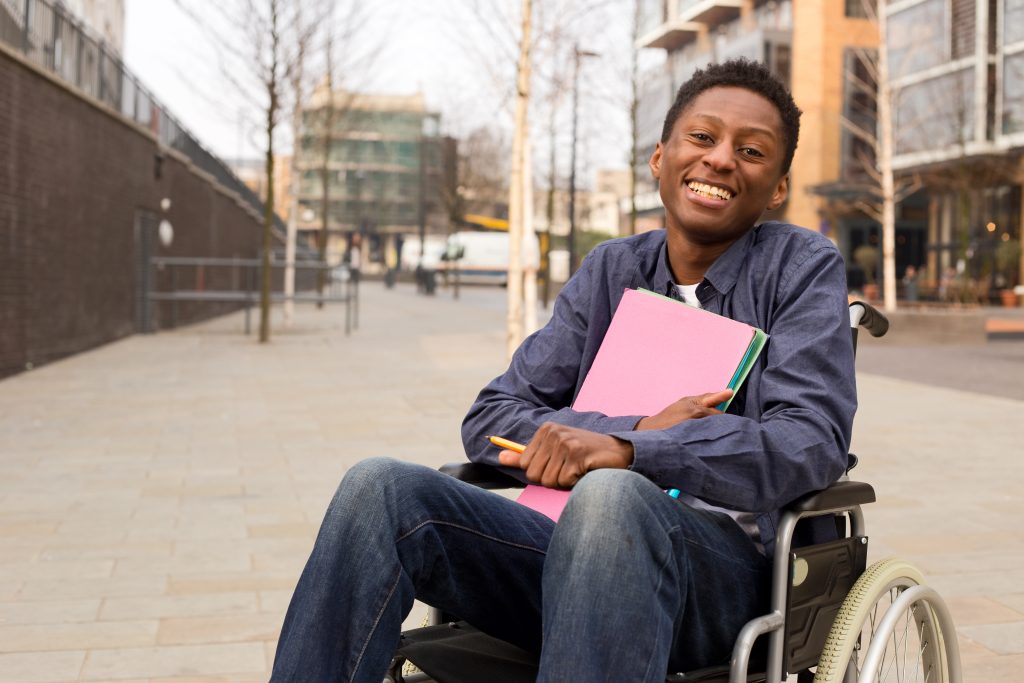
In addition to being supportive on an individual level, students and schools can rally together to create positive change for classmates in their communities. Questions like, “How can I do more to raise awareness?” and “What events can help educate our community about cancer and support community members?” will be answered in our next segment of the Cancer in High School series. We will also cover how high school students can rally together to make a difference for teens in their community.
Want more?
- Learn more about the b-aware program
- Read You Just Found Out Your Friend Has Cancer – Now What?
- Subscribe to The Support Report with b-present
- Follow b-present on Instagram
Sources:
https://www.cancercouncil.com.au/cancer-information/schools-and-teachers/cancer-in-the-school-community/
https://www.kidshealth.org.nz/supporting-your-student-returning-school-after-cancer-treatment
https://www.lls.org/blog/after-cancer-treatment-when-going-back-school-isnt-exciting
https://www.teenvogue.com/story/dkms-what-its-like-to-have-cancer-in-high-school
https://www.cancer.org/treatment/caregivers/how-to-be-a-friend-to-someone-with-cancer.html
https://www.cancer.net/navigating-cancer-care/young-adults-and-teenagers/school-and-work-during-cancer/managing-school-during-and-after-cancer
